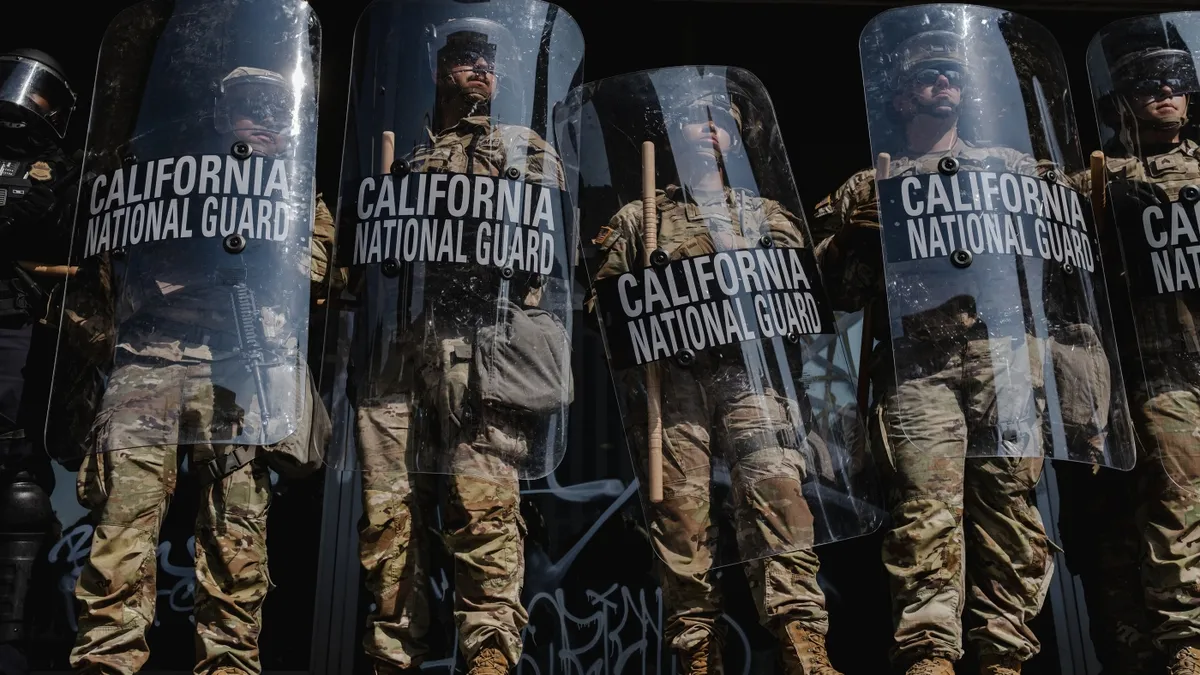
In a move that challenges both tradition and legal precedent, President Trump is advocating for the deployment of the National Guard to Democratic-led cities, including Portland, Oregon, and Chicago, Illinois. This decision is primarily justified by Trump as a response to what he describes as rampant crime and as part of his broader crackdown on illegal immigration.
On Monday, the state of Illinois and the city of Chicago took a significant step by filing a lawsuit aimed at halting the Trump administration's plans to send National Guard troops into the state. Their argument centers around the claim that the administration has overstepped its legal authority under Title 10, a statute that permits the president to activate the National Guard for federal service. Legal experts suggest that Trump is testing the boundaries of presidential power by invoking this rarely used statute to deploy federal troops in American cities without the explicit approval of state authorities.
The legal outcomes surrounding this deployment have been inconsistent. Officials in Oregon and Portland successfully delayed the efforts to send troops to their cities, while a federal judge in Illinois refrained from immediately blocking the deployment on Monday evening. This ongoing legal battle highlights the contentious nature of Trump's military strategy in cities like Portland and Chicago, which are among the latest targets for potential troop deployment. Previously, Trump had dispatched hundreds of troops to cities such as Los Angeles and Washington, D.C., during the summer, and the National Guard was also ordered to Memphis—a move that received backing from Tennessee's Republican governor.
The National Guard operates under three different command structures. The first is state active duty, where troops are commanded and funded by the state. The second, Title 32, sees troops under state command but federally funded, as is the case in Memphis. The third, Title 10, places Guard members under both federal control and funding. According to Title 10 provisions, the president can deploy the National Guard into federal service under specific circumstances, such as an invasion or rebellion, or when the president cannot execute U.S. laws using regular forces.
The Trump administration argues that it is unable to enforce immigration laws in light of ongoing protests in these cities, a justification that Elizabeth Goitein, a senior director at the Brennan Center for Justice, notes is unprecedented. Historically, the National Guard has been federalized for domestic deployment only in extreme situations where state and local law enforcement are overwhelmed.
Critics assert that the situations in Portland and Chicago do not meet the threshold of a rebellion that would warrant federal troop deployment. They maintain that even under Title 10, the governor of each state must approve such an order for the troops to be federalized. Goitein argues that the issue is not whether the federal government should wield this authority, but rather if it should exercise it based on what appear to be fabricated claims about the conditions on the ground.
One legal route through which a president can deploy the National Guard domestically without state consent is the Insurrection Act. This set of laws is intended for addressing significant civil unrest and permits federal troops to engage in law enforcement activities, including arrests and searches. Historically, the Insurrection Act has been invoked rarely, with the last instance occurring over 30 years ago during the Rodney King riots in Los Angeles. In a recent statement, Trump indicated that he might consider invoking the Insurrection Act under dire circumstances, such as if lives were at stake.
Federal judges, particularly in California and Oregon, have largely approached the troop deployments with caution and skepticism. U.S. District Judge Charles R. Breyer criticized the Trump administration's actions as illegal, asserting that federal officials did not adhere to proper protocols for federalizing troops. However, the 9th Circuit Court of Appeals has previously suggested that a significant degree of deference should be given to the president’s assessment regarding the need for military intervention.
In Oregon, U.S. District Court Judge Karin Immergut ruled that the facts did not support the necessity for military intervention, even when considering deference to the president's authority. She emphasized that the deployment of federally activated National Guard troops would infringe upon Oregon's sovereignty. As developments continue, the federal court in Illinois has yet to deliver a ruling on the Trump administration's efforts to deploy Guard members there, with U.S. District Judge April Perry allowing the administration until the end of Wednesday to respond to the lawsuit filed by state and city officials.
Legal experts predict that it may ultimately fall to the courts to define the limits of presidential authority concerning military intervention in American cities. Stephen Vladeck noted that it is likely only a matter of time before the Supreme Court is called upon to clarify the circumstances under which military intervention is justified.